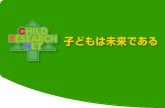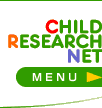地理教育への文化的アプローチ
―日本の小学校国際理解教育の事例分析― |
サルカール アラニ・モハメッド レザ
アラーメ・タバタバイ大学准教授 (イラン)
Sarkar Arani Mohammad Reza
Associate Professor, Allameh Tabatabai University (Iran)
|
| |
Abstract
This paper tries to clarify Japanese program of Education for International Understanding (Kokusairikaikyouiku) which promote school environment for understanding global situation and other different cultures in practice. Emphasis is placed here on the geography instruction which giving teachers and students the opportunity to teach about the environment, to learn from the environment and to investigate in the environment.
The intention is to examine what happened actually in two lessons of social study (geography instruction) class in Komeno elementary school which is representative of a typical municipal elementary school in Nagoya. I employed a case study method as the primary methodological approach for data collection.
The article concludes with students’ reflections and experiences on program of Kokusairikaikyouiku and teachers’ reflections on global learning with emphasis on the cultural approach in geography instruction and social study.
(概要)
本論文の目的は、国際理解教育における日本の体験を、地理教育を事例として説明するものである。これに基づき、まず、地理教育の目的との関係における国際理解教育の概念が説明される。その後、環境に対する子どもたちの理解を深め、また国際的な相互理解の拡大と平和的共存のために環境の諸問題を教える方法が、次のような枠組みの中で分析される。1)環境についての学習、2)環境において、あるいは環境から学ぶ、3)環境のための学習。
本論文では、日本の中部地方(名古屋)のある小学校における 5 年生の社会科学習(地理)の授業を事例に、あるテーマに対する生徒たちの授業参加とテーマへの理解の方法を分析し、地理学習が、日本における国際理解教育の推進に寄与することを明らかにする。(本文より一部抜粋)
『日本大学国際関係学部―国際関係研究紀要』第25巻第3号、111-127頁から転載しました。
|

|
|
|
|
|
|
|
|
 |
 |
 |
チャイルド・リサーチ・ネット(CRN)は、
ベネッセ教育総合研究所の支援のもと運営されています。 |
|
 |
|
 |
|
|

